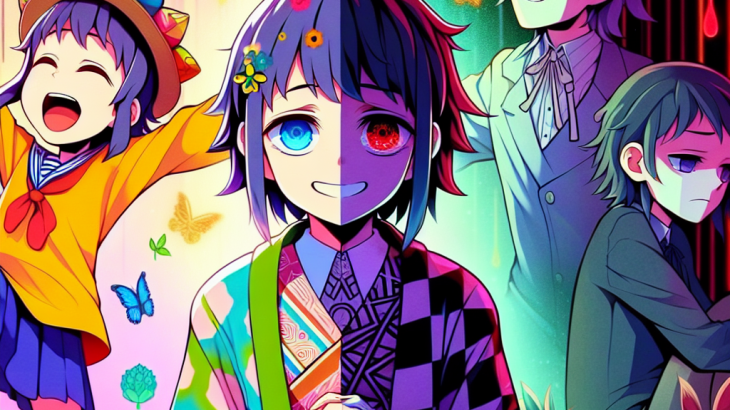The Psychological Depths of Character Development in Anime
Anime isn’t just about explosive battles, flashy powers, and catchy theme songs (though those are spectacular too!). The real magic of anime often lies in its intricate character development. From the back alleys of Tokyo’s bustling streets to fantastical realms teeming with mythical creatures, anime characters offer viewers an incredible psychological depth that resonates on a profoundly human level.
The Art of Layering Characters
Unlike many other media, anime has a unique knack for layering its characters. This multilayered approach helps create personas that are not just believable but also relatable and emotionally engaging. Even the most seemingly one-dimensional characters can unveil complexities over time that keep audiences hooked.
- Emotional Growth: Take Naruto Uzumaki from “Naruto”, for example. He evolves from a mischievous outcast into a hero who shoulders immense responsibilities. His emotional growth is painstakingly layered, depicting a realistic transformation shaped by his experiences and relationships.
- Backstories and Motivations: Characters often come with detailed backstories and clear personal motivations. This storytelling device helps viewers understand why characters act the way they do, adding psychological weight to their actions.
- Realistic Flaws: Anime characters are relatable because they have flaws. From Luffy’s foolhardiness in “One Piece” to the social anxiety of Hachiman Hikigaya in “My Teen Romantic Comedy SNAFU,” their imperfections make them human.
The Role of Archetypes and Tropes
Anime also excels by playing with archetypes and tropes. While it’s easy to dismiss these as clichés, the nuanced approach in anime often transforms them into profound psychological studies.
- The Hero: Usually characterized by an inner struggle, the hero archetype in anime often undergoes a journey of self-discovery. Think of Eren Yeager in “Attack on Titan”, whose initially simplistic drive for vengeance morphs into a deeper exploration of freedom and morality.
- The Mentor: Guides like Jiraiya in “Naruto” and All Might in “My Hero Academia” provide not just skills but also philosophical truths that shape the protagonists’ minds.
- The Rival: Rivals such as Sasuke from “Naruto” and Vegeta from “Dragon Ball Z” serve to challenge and push the protagonists, often acting as foils that highlight the hero’s growth and shortcomings.
The Psychological Impact of Conflicts
Conflicts in anime are more than just physical battles; they often serve as vehicles for psychological exploration. Characters frequently face moral dilemmas, internal conflicts, and crises of identity that make their journeys complex and relatable.
Consider the intricate conflict faced by Shinji Ikari in “Neon Genesis Evangelion”. His struggle with self-worth, isolation, and pressure to live up to expectations offers a stark look at anxiety and depression. On a lighter note, the internal battles faced by characters in slice-of-life series like “Clannad” touch on everyday psychological challenges, from love and loss to personal growth and acceptance.
Community and Cultural Influences
Beyond the screen, the complexity of anime characters resonates deeply with fans, creating robust communities that fiercely debate and analyze every narrative twist. You can find thriving anime communities discussing these complex characters on Popular Anime Channels on Telegram. These discussions often mirror the depth and engagement we see within the anime itself, providing a communal space for shared enjoyment and analysis.
Conclusion: The Psychological Canvas of Anime
From intricate backstories and relatable flaws to nuanced archetypes and intense psychological conflicts, anime characters offer profound psychological depth. This complexity not only captivates viewers but also contributes to meaningful discussions within the fandom. So the next time you dive into an anime series, remember, you’re not just watching; you’re experiencing a layered psychological drama that can deepen your appreciation of what anime has to offer.
Think of anime character development as an ongoing psychological study. With every episode, new layers are peeled back, revealing the intricate tapestry of the human mind in all its gloriously complex splendor. And for the latest anime updates and discussions, check out these Top Anime Telegram Channels. Happy watching!
